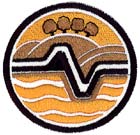Questions about joining us
Here are the answers to everything you might want to know about joining the Devil's Dyke Morris Men. Other pages on this site describe the history of morris dance, How to dance the DDMM way describes all the dances we do, with links to videos.
-
Why join DDMM?
It's fun and it's free! Dance is an excellent way to keep fit, and it has a lot in common with team sport: the same sort of camaraderie, from working together to enjoying a beer afterwards. Dancing to 'live' music is joyous, and we are helping preserve an important part of our culture. It is also a way of raising money for charity. Here is what one of our newer members has to say about why he started and why he stuck with it
-
When's the best time to start?
You're welcome to start at any time, but it can be easier to join in September / October, because that will give you plenty of time to get to grips with what's involved before the spring when we start dancing out in public. If you have done it before you can probably join straight in, though there may be differences from how you are used to doing some dances.
-
Can I just turn up?
Yes, and that's what the 2024 'Have a Go' sessions (Thursdays 19 and 26 September) are all about. The 19th is at the Bell pub in Bottisham, the 26th is in our usual practice hall, Scout Hut, Bottisham, CB25 9BB (map link).
Most of us find it a bit daunting joining something established, and you might prefer to talk to one of us first, or to be given a lift to practice so you don't arrive alone. If so, do get in touch with Gordon the bagman (that's our secretary) on 01223 833983, or via email at bagman [at] devilsdykemm.org.uk. If you want to start later in the year, it's best to give Gordon a ring first.
To meet safeguarding rules, anyone under 18 must come along with a parent. If in doubt, do contact us to ask. -
Is Devil's Dyke men only?
Yes and no. We have male and female members, but while we have excellent female musicians, the dancing side consists only of men.
-
What's the commitment?
There's no commitment apart from giving it your best shot while you are learning. You're not obliged to perform in public or to be available for a certain number of events a year. However, to make progress you'll need to come to practice regularly.
There's no joining fee or subscription: we collect enough money each year to cover costs. When you dance out you will need white clothes, a set of bells and a baldric, which will cost a few pounds, but that's all. -
What about learning?
We practice in Bottisham, (almost) every Thursday evening between mid September and the end of April. The venue is the Scout Hut, Bottisham, CB25 9BB (map link). That's to keep fit, and to brush up the dances we do. A vital part of our practice is helping people learn new dances. We spend a lot of time on this, mostly through a mix of demonstration and repetition. New members are our lifeblood and we take helping them learn very seriously.
Practices last about 90 minutes. Wear casual loose clothing and comfortable shoes , and bring along a pair of fairly large white hankies to dance with.
We hold 'Have a Go' sessions at the end of the summer (2024 dates: 19 and 26 September) to give newcomers a feel for what the dances are like and for the sort of people we are. -
How hard is it?
To start with, you need to be fit enough to cope with exercise in 5 minute bursts, and practice will definitely make you fitter. You don't have to be musical, but a sense of rhythm will help. The footwork can be quite intricate but it comes with practice. The dances themselves range from straightforward to challenging, but you learn at the that pace suits you. New comers generally focus on 4 to 6 dances, but we try to keep around 60 dances in our total repertoire, so there's plenty to get your teeth into as you progress.
-
What about music?
We practice (and perform) to live music, generally melodeon or accordion, though other instruments such as the fiddle work well too. If you are interested in playing for the dancing you would be very welcome – you'll find it adds another and most enjoyable dimension to your playing.
-
What about dancing in public?
We'll encourage you to dance out. You don't have to though. Any worries about being seen dancing tend to be outweighed by the buzz of the performance, and we won't ask you to do anything in public unless we think you can. We take a pride in putting on a performance worth watching, and we do our best to avoid the stereotype of the self-indulgent dancer more interested in the beer than the audience.
The bedrock of our public performances are Thursday evenings in the summer when we dance at local pubs and we also dance at festivals, Morris meetings, and even (occasionally), at fetes.
We expect to collect enough money this way to pay for practices, and we usually donate more than £500 a year to charity out of the collection. -
How can I find out more?
There's plenty of information about DDMM on the rest of this site, via the page links on the left, and you are very welcome to contact us to find out more.
The links page will take you to more information - the Morris Ring site in particular contains a great deal of information about the world of morris dance.
